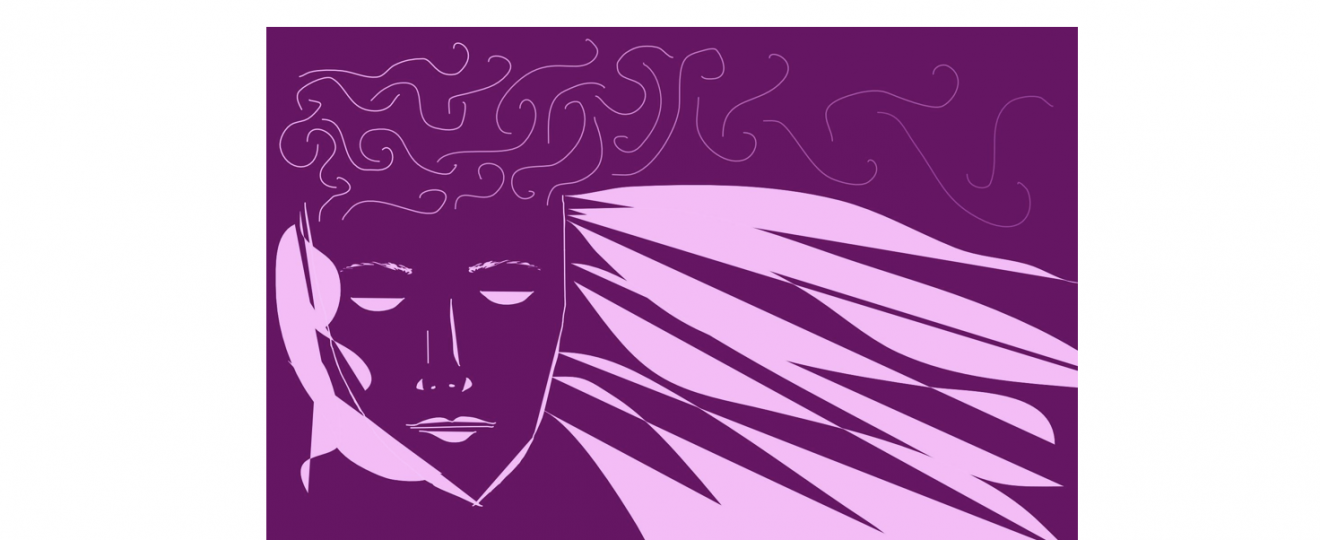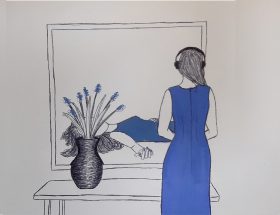During lockdown, nostalgia has become a kind of addiction for me. I search for it everywhere – every evening walk with my dog makes me mourn a similar walk I took three years ago, when the sun was setting and the light trickled through the trees just so and I was listening to ‘Skyline To’ by Frank Ocean and I was thinking about how beautiful my home was and not how sad or lonely or bored I am. Every time I catch a chimney flooded with light, sticking out high enough to catch the last of the sun whilst the rest of the building is covered in darkness, I think about walking through Market Street in St Andrews with my friends, commenting on all the buildings and the beautiful dot of brightness that sat on top of them as the sun went down. Every time my dad drives me home from university at the beginning of summer, and we pass the beautiful northern coastline in the late-May sunshine, I reminisce on the very first time he brought me home when I was just 19 years old. Whenever I hear one of my favourite summer albums, I force myself back to that holiday that I overplayed it on, and I wish I could go back and do it all again. I feel a loss each time I look back like that, but it makes me happy too. Perhaps the inventor of the word bittersweet was simply looking for the perfect way to describe nostalgia.
Nostalgia is derived from two Ancient Greek words, nóstos and álgos (νόστος and ἄλγος) meaning ‘homecoming’ and ‘ache’. These two words, together, form this beautiful sentiment. The ache of home, the pain of missing something wonderful. There is a sense of loss, and a sense of appreciation that you can still enjoy that thing which you miss. Nostalgia is bittersweet, nostalgia is addictive and often we find ourselves drowning in it. Surely even more so in lockdown than a normal summer.
That is partially because negative feelings, loneliness and sadness, induce nostalgia more than positive emotions (see Tim Wildschut’s 2006 experiments on nostalgia). Have we collectively, as a society, ever felt more lonely, isolated and downtrodden than during the past few months? Arguably not in this millennium (which for many of us, is also our lifetime).
When loneliness and despair creep in, naturally we turn to the past: we felt more secure, more stable and the world around us seemed simpler and more predictable. We had routine and structure, we had friends and freedom. For many of us, summer meant a family holiday (to the USA, to Spain, to Cornwall). Whilst we were stuck inside, trying to focus all our energy on baking or yoga or not fighting with our quarantine bubble or keeping our mental health stable, we looked back more and more on the way things used to be, which is maybe what we hoped the present would be.
Despite the sense of loss that accompanies nostalgia (loss of that moment, of that relationship, of that feeling), the overall effect on us is positive. It increases our sense of meaning, yes, but it also can inspire us. It can inspire us to reach out to a friend we were once close to, it can inspire us to work harder to achieve something, it can focus us in on the most important goal in our life. It is also a way for us to cope with negative emotions – despair, loneliness, low self-esteem. We use memories for reassurance, as comfort and as a reminder that we have been happy and loved and at peace and we can feel those things again.

For years, nostalgia was believed to be a psychiatric disorder: soldiers were even discharged from service during war because they were suffering from nostalgia in the 17th century. It took hundreds of years for the view of nostalgia to develop to what we know now. Rather than being a disorder associated with trauma, we now understand that nostalgia was (and is) used as a coping mechanism. As it springs forth from negative emotions, fear, and longing for safety, it is completely understandable that nostalgia was rife amongst soldiers during wartime, and now in the midst of the scary and uncertain times of a global pandemic. Separated from loved ones, from normalcy, constantly plagued by worry and anxiety that goes beyond everyday fretting, it is perfectly natural that nostalgia has become a comforting state for us to revert to.
We re-watch our favourite shows from our childhood even though we know they aren’t very funny and are maybe a bit offensive and they don’t make us smile the same way anymore. When we watch films about high school kids, we don’t aspire to be them anymore, we don’t feel excitement for the future: we feel a sense of loss, perhaps regret, and some form of sadness. But we manage to feel, to an extent, the same comfort and security and innocent joy that we felt all those years ago. That’s what we crave. We keep our favourite childhood books – maybe not on our bookshelf, maybe hidden under the bed or in our parents house. We’ve read them a hundred times, but we keep them because it reminds us of when we felt more intelligent and more interesting and had the wildest imagination ever. We prescribe ourselves this form of nostalgia, but real nostalgia is really when our body is prescribing it for us.
I will always relish my nostalgia, my constant longing for something lost, my ability to be in ten different times at once and keep moments alive long after they have passed. The past always will exist in the present, to give it meaning and keep it company. Even as I bathe in the light of today, I will have an aching yearn for yesterday’s golden sunshine.

art by Anna Kerr




